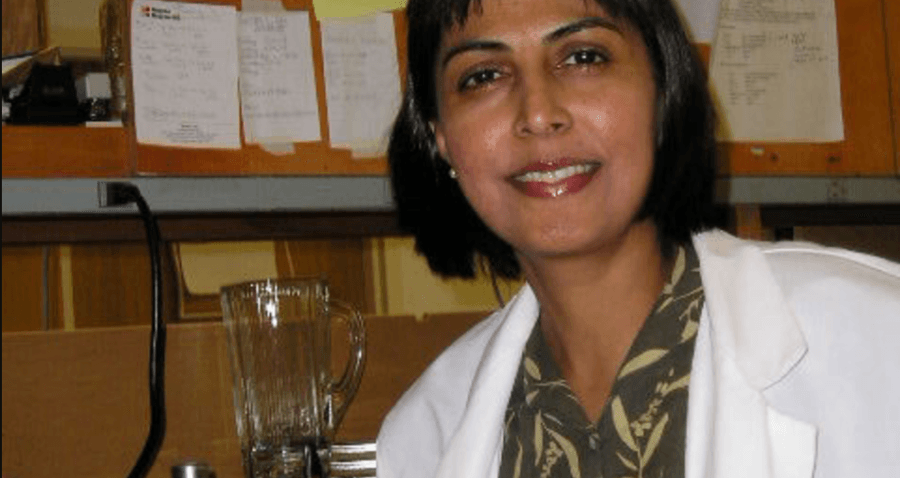HBCU Xavier University of Louisiana, which sends more African-American students to medical school than any other college in the country, announces groudnbreaking cancer research
New Orleans, La. (April 5, 2017) — The latest findings in a study conducted in the Ireland Lab at Xavier University of Louisiana demonstrate that a newly developed ‘super cocktail’ of six phytochemicals can kill BRCA1 mutated breast cancer cells and inhibit “mammary tumorosphere” (also called mammospheres) formation. Significantly, this effect has been achieved at bioavailable/bioachievable levels.

Dr. Shubha Ireland (Xavier University of Louisiana)
Participating researchers are Dr. Shubha Ireland (Professor of Biology, Xavier) in collaboration with Dr. Madhwa HG Raj (Professor, LSU Health Sciences) and Dr. Shailajja Raj, MD (Protegene Corporation, Metairie, LA).
The latest findings build on previous research conducted in the Ireland Lab and published in the Journal of Cancer (vol.4, pp.703-715, November 2013), which found that the cocktail showed 100% killing of triple-negative breast cancer cells without any adverse effects on normal (non-cancer) cells. These results, along with genetic/molecular data were the impetus for development of “Breast Safeguard-Susthana” by the Protegene Corporation (www.protegenecorporation.com).
About BRCA1
Women carrying BRCA1 mutation almost certainly get breast cancer and ovarian cancer, for which there is currently no known treatment other than radical mastectomy followed by chemo and radiation therapy. Celebrities including Angelina Jolie and other public figures have undergone bilateral mastectomies because they carried this mutation.
About the ‘Super Cocktail’
This super cocktail was developed to simultaneously inhibit characteristics common to several cancers, namely cell proliferation to form tumors, cell survival by immortalization and metastasis resulting in spreading of the cancer to other organs. In fact, the Ireland Lab’s current studies are demonstrating that it indeed works against prostate and lung cancer cells in addition to the hormone-sensitive triple negative and BRCA1 mutated human breast cancer cells. Further, this super cocktail is unleashing ‘programmed cell death’ (also called as apoptosis) in the cancer cells specifically, without affecting normal (non-cancerous) mammary epithelial cells, mesenchymal stem cells and fibroblasts.
What’s next
These reproducible and significant findings have set the foundation for in vivo studies of the super cocktail which is the active component of the Breast Safeguard-Susthana of the Protegene Corporation. More than 750 women (with and without breast cancer) have used the super cocktail without reporting a single adverse reaction or side effect. Currently this product is being made available as a nutritional supplement for breast health support to women.
These exciting data were presented under ‘late breaking abstracts’ at the meeting of the American Association for Cancer Research (AACR) on April 4, 2017 in Washington D.C.
This ongoing research includes participation by Xavier undergraduate students and is funded by:
– The Louisiana Cancer Research Consortium (LCRC)
– Dr. Ireland’s Xavier Eminent Scholar XXXVIII Professorship through the Louisiana Board of Regents funding

About Xavier University of Louisiana
Xavier University of Louisiana, founded in 1925 by Saint Katharine Drexel and the Sisters of the Blessed Sacrament, is the only Catholic and historically Black higher education institution in North America. The ultimate purpose of the University is to contribute to the promotion of a more just and humane society by preparing its students to assume roles of leadership and service in a global society.
Xavier ranks first nationally in the number of African-American undergraduates continuing to complete medical school and is leading the nation in bachelor’s degrees granted to African Americans in the biological and biomedical sciences, the physical sciences, and physics, and in graduation of African-Americans who go on to earn doctorates in the sciences and engineering.
More at www.xula.edu.









